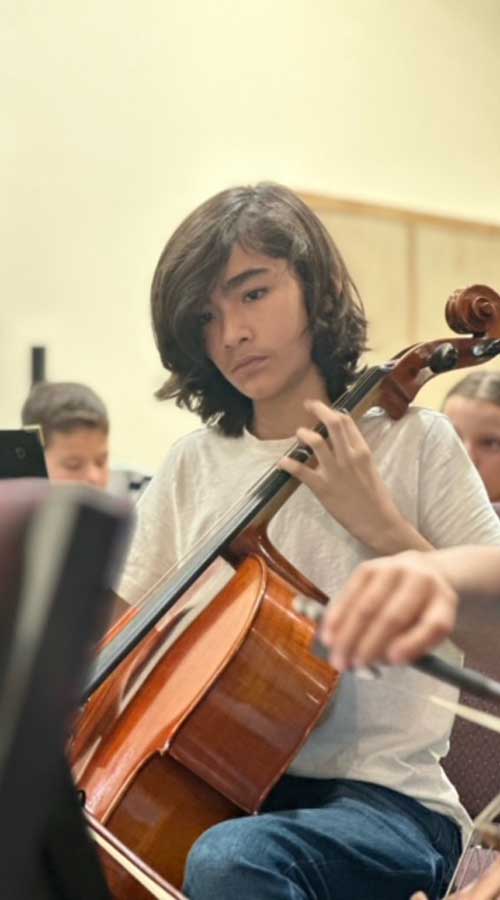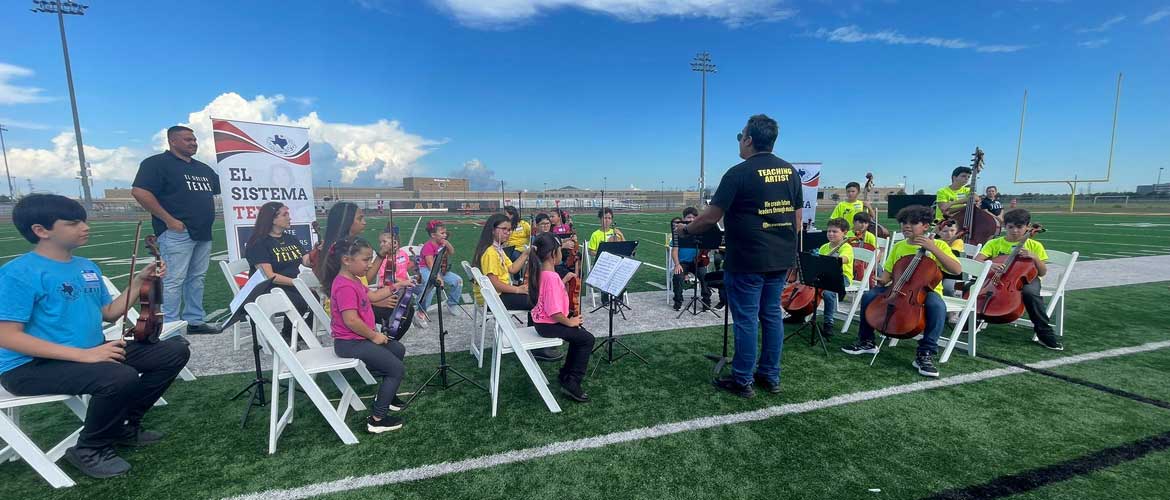By Ana Carolina Morales
Music goes beyond perfectly combined sounds that make an audience feel happy, sad, or inspired. Musical education is a complex discipline; it challenges the students’ physical, mental, and emotional capabilities. Practice is a must, and musicians from an early age not only learn how to sing or play an instrument; they gain skills for a lifetime.
From mastering the technique (fluid rhythm or breath control) to building confidence to perform live in front of hundreds of people, music students develop qualifications crucial in any other personal and professional field.
Teacher Rhomy López, founder of El Sistema Texas, explains how learning about music and practicing fosters a skill set of expertise in their students.
Motor and Cognitive Abilities
Learning to sing or play the violin or cello is not only about memorizing notes and understanding music composition. Students build attributes that help them progress with their instruments and synchronize with their classmates as they perform.
Constant practice helps them develop self-confidence and the creativity to express themselves. They develop discipline, patience, and self-management while solo rehearsing. As part of a team, they learn how to communicate and receive feedback to improve their style.
“The most important skills are their ability to concentrate, the progress in their motor coordination, neurolinguistic development, auditory memory, and musical sensitivity. Discipline, patience, and the ability to work as a team are the cues of a student’s progress,” detailed López, who began her musical journey at five years old.
Emotional Development
To listen to and to create music is an outlet for creativity and emotional expression. It is a therapy tool that benefits anyone who explores an instrument or sings.
“One of the most significant pieces of knowledge for a musician is to develop the ability to express themselves emotionally and artistically through their instrument. El Sistema Texas promotes technical musical instruction but also social and emotional skills. We use music to teach them how to work as a team, which generates confidence, it boosts their creativity, honesty, and fraternity,” reinforced López.
This BBC article explains how music and rhythm do an excellent job of fostering a sense of community and how musical rhythm helps overcome differences.
Technical Skills
From breathing techniques to using your fingers and motioning your body. Playing an instrument requires physical stamina to keep up with hours of rehearsals and live performances.
“At El Sistema Texas, the preparation time for performances varies depending on the level and goals of each student and group. It can be a couple of months for younger children, but orchestras require much more practice time inside and outside the classroom,” said López.
In short, music is a complex but beneficial tool that challenges your brain, develops physical strength, and boosts emotional health. If you are interested in El Sistema Texas musical programs, contact us here to schedule an audition.



